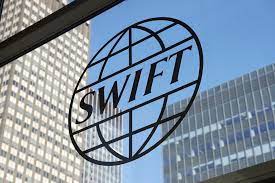Global bank messaging network SWIFT is planning to launch a new platform within the next one to two years to connect central bank digital currencies (CBDCs) currently under development with the existing financial system.
The initiative represents a major step for the emerging CBDC ecosystem, given SWIFT’s crucial role in global banking operations.
With around 90% of the world’s central banks exploring digital versions of their currencies, there is a push not to fall behind the advancements made by bitcoin and other cryptocurrencies. However, technological complexities pose a challenge.
SWIFT’s head of innovation, Nick Kerigan, highlighted that the network’s latest trial, which included a diverse group of 38 central banks, commercial banks, and settlement platforms. The joint effort focused on interoperability among different CBDCs, even if they are built on varying technologies.
The trial also explored the potential for CBDCs to be used in complex trade or foreign exchange payments and for transactions to be automated, which could expedite processes and reduce costs. The successful results have prompted SWIFT to consider productizing the new platform within the next 12-24 months, moving from experimental stages to reality.
Meanwhile, the platform’s development is timely, given SWIFT’s visibility following its role in disconnecting most Russian banks from its network as part of sanctions for the invasion of Ukraine
Countries like the Bahamas, Nigeria, and Jamaica already have operational CBDCs, with China conducting advanced real-life trials of an e-yuan. The European Central Bank is working on a digital euro, and the Bank for International Settlements is undertaking multiple cross-border trials.
SWIFT’s network connects over 11,500 banks and funds across more than 200 countries, facilitating the transfer of trillions of dollars daily. The planned platform aims to provide a singular global connection point for digital asset payments to upgrade scalability and efficiency within the banking industry.
According to industry forecasts, nearly $16 trillion worth of assets could be tokenized by 2030, transforming them into digital formats for real-time issuance and trading.












